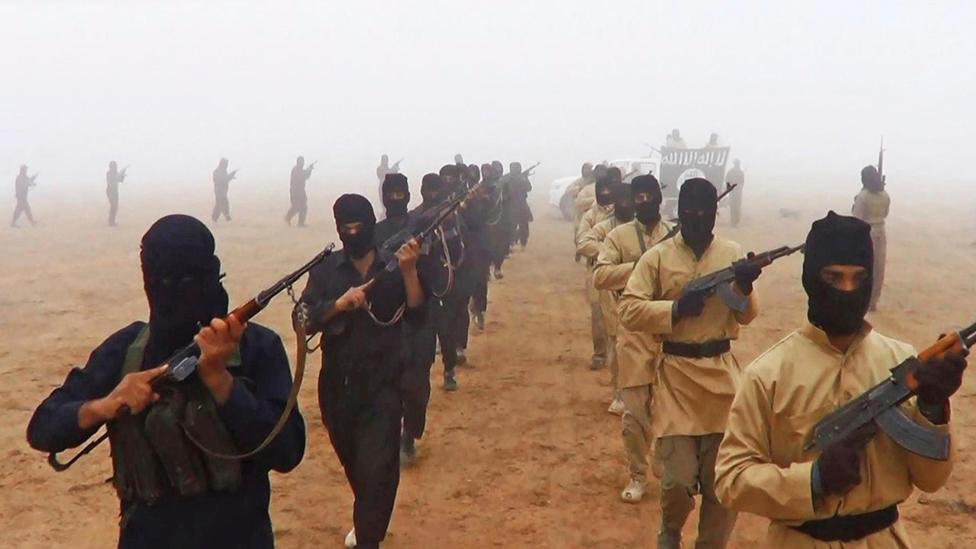Islamic State group: Spain arrests man 'financing return of fighters'
- Published
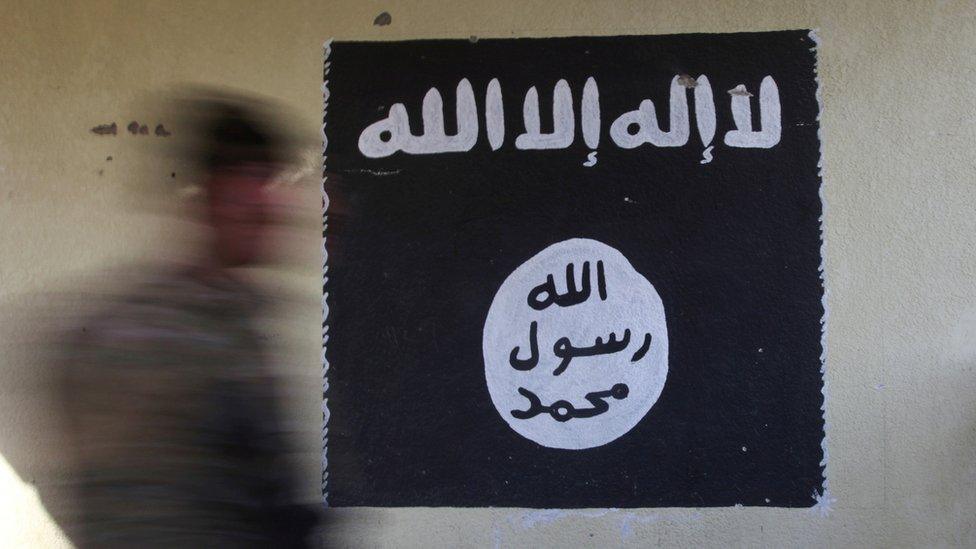
The men were found guilty of joining Islamic State (file image)
A Syrian man accused of financing the return to Europe of Islamic State (IS) group members has been arrested in Madrid, Spanish police say.
The man, who has not been named, is suspected of being part of the group's financial structure and of sending money to fighters in Syria.
The money raised in Europe reached the jihadists through an informal transfer system known as hawala, police said.
Almost 6,000 fighters from Western Europe joined IS in Syria and Iraq.
Spain's National Police said its investigation determined that fighters set up a structure in Syria to give financial support to foreign fighters wishing to return to Europe.
"This [police] operation is part of the fight against the new strategy, external of [IS] which, after its loss of territorial control, has urged its members to return to their places of origin," police said in a statement (in Spanish).
The suspect - reportedly 43 years old - used a "number of security measures to hide his identity and communications on digital platforms," police added.
Hawala is an informal system of money transfer which uses brokers based in different countries, making it difficult for authorities to keep track of cash being moved across borders.
Under hawala, no money actually crosses international borders.
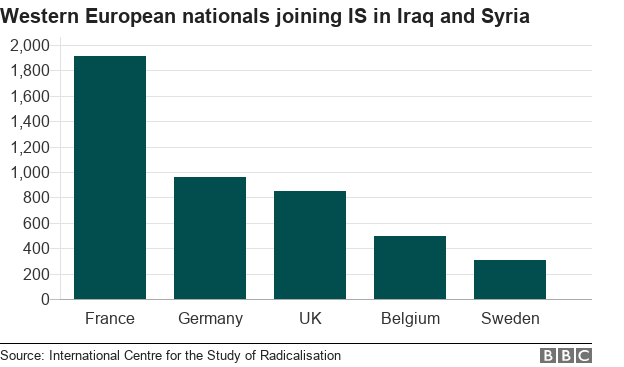
More than 41,000 people from dozens of countries around the world are estimated to have joined IS in Syria and Iraq, external - about a quarter of them women and children.
Approximately 850 people from the UK were among them, including 145 women and 50 children.
The vast majority of IS militants are believed to have been either killed or captured. It is unclear how many foreigners have died.
The BBC speaks to two British militants who were members of the so-called "IS Beatles"
Researchers suggest at least 7,000 have travelled back to their countries of origin.
Those countries have raised concerns about bringing hardened jihadists back and the challenges of gathering evidence to support prosecutions.
- Published23 March 2019
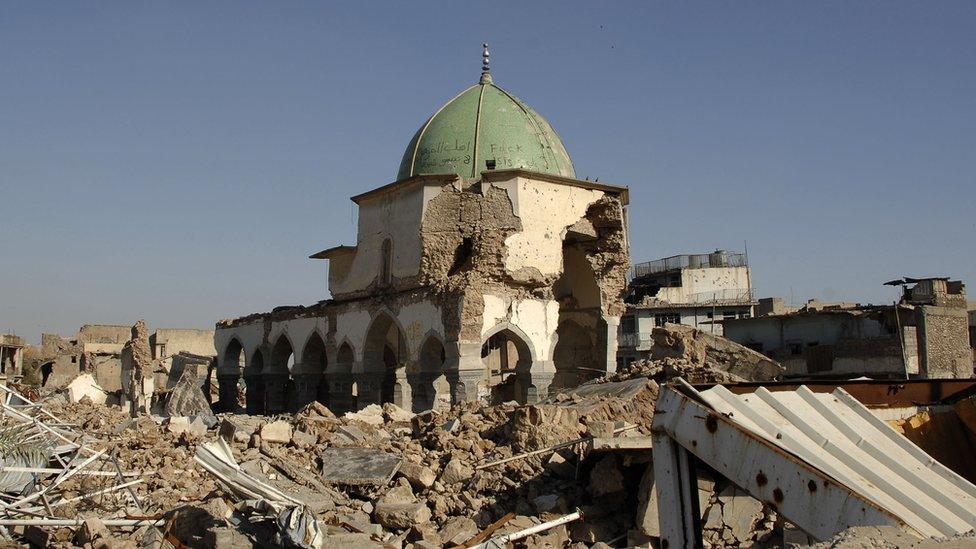
- Published15 February 2019
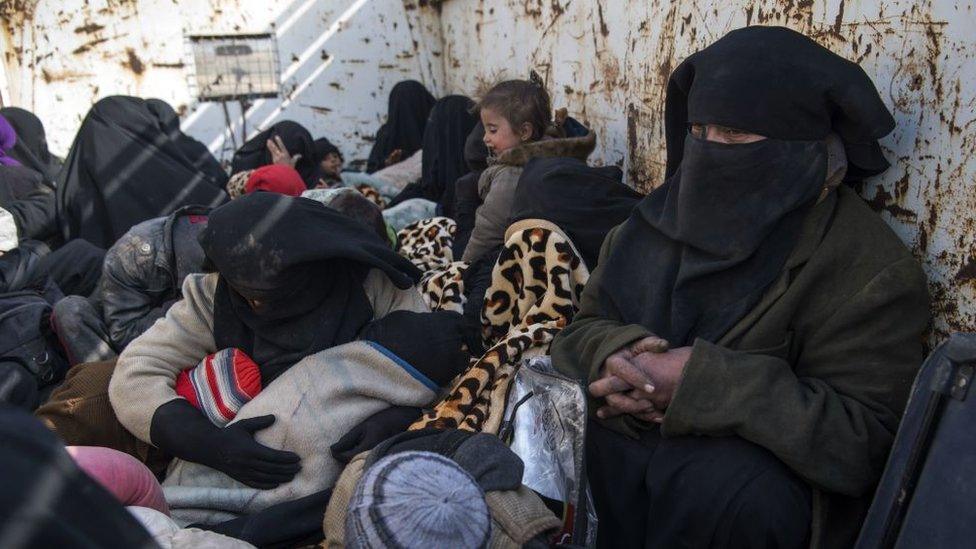
- Published17 October 2017
